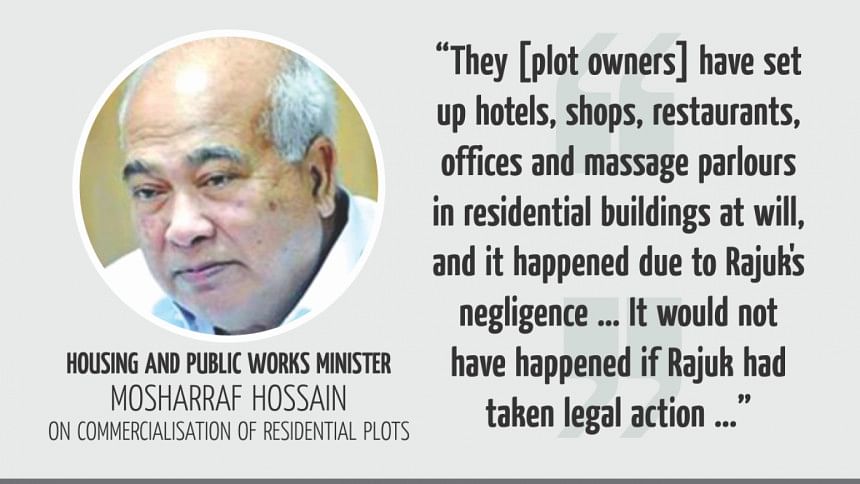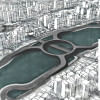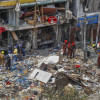Rajuk comes under fire

Retired additional secretary Abdur Rashid Khan had applied for a residential plot in Rajuk's Uttara Model Town in 1998. Nearly two decades later, all he has is an allotment letter but no plot.
Rashid, now quite old, said he had written scores of letters to the Rajdhani Unnayan Kartripakkha (Rajuk) over the years but all his words fell on deaf ears.
“They hardly listened to me to end my anguish … One deputy director said it would take me 20 years to get the plot,” Rashid said, adding, “The then [2004-5] Rajuk member (admin) said that it would require Tk 60,000 just to look into the file.”
Rashid and many others presented their cases at a public hearing on Rajuk's role organised by the Anti-Corruption Commission (ACC) at the Osmani Memorial Hall in the capital yesterday.
Rashid's case was not even the tip of the iceberg. Many had been waiting longer for their plots, some almost three decades.
Rajuk member for estate Abdul Hai said Uttara Sector-17, where Rashid's plot was, would be ready within the next six months.
In front of top ACC and Rajuk officials at the hearing, Rajuk came under public wrath pent up for years. They accused Rajuk officials of harassing service seekers and indulging in corruption.
They said Rajuk does not act to alleviate people's sufferings, even after ministers' recommendations and instructions from higher authorities.
Expatriate Bangladeshi Rezaul Islam said Rajuk had issued a lease deed of his plot in Uttara Sector-11 to someone else and the “lease holder” was constructing a building on his plot.
“I got Commerce Minister Tofail Ahmed to recommend Rajuk to end my predicament but it did not work,” he said.
Rezaul said, “Now, as I have been taking frequent leaves from my work to get my plot back, I'm about to lose my job or the plot.”
Md Shahidullah, standing in for his father-in-law, said they got an allotment for a plot in Badda rehabilitation area in 1987. They have not got the plot yet.
“We have been waiting for 28 years, how long do we have to wait?” said Shahidullah.
Abdur Rashid of Shahjahanpur said a land grabber occupied his ancestral property on 706 Shahidbagh and he filed a case in this regard in 2001. But Rajuk approved a building plan in favour of the land grabber in 2011 even though the case was pending with a court.
He said Rajuk, despite having the proof that the land grabber got the building plan hiding information, did not act and deliberately corresponded with Rashid to an incorrect address.
Expatriate Bangladeshi Gazi Md Abu Taher said a land grabber occupied his land in Mirpur and was constructing a 10-storey building with Rajuk approval.
Even after he produced all his ownership documents before Rajuk, it did not cancel the building approval, he said.
Shah Jamal from Chittagong said he won the chance to buy a plot through lottery in Uttara Third Phase in 2005. His name was published in the newspapers and was registered in Rajuk records but Rajuk has not issued the allotment letter “on the grounds that his file has gone missing”.
“I have written to Rajuk 10 times in the last seven years but to no avail,” he said.
Among the 75 aggrieved listed for the day's hearing came up with similar allegations of harassment, irregularities, and anomalies by Rajuk.
Rajuk high officials promised to solve the problems of the 75 within two to three months.
“There are many incidents of Rajuk losing files,” said Housing and Public Works Minister Mosharraf Hossain.
Citing examples of lawlessness in building construction in Dhaka, the minister said building owners randomly deviate from the approved plans and “there is hardly any building that has not deviated” from the original plan.
Rajuk could not oversee every single building during and after construction, he said, adding that Rajuk should have done its duty with whatever capacity it had.
“Plot owners in Gulshan, Banani, and Baridhara obtained building plans for residential houses but today these residential areas have no difference with the commercial,” said the minister, adding, “They [plot owners] have set up hotels, shops, restaurants, offices and massage parlours in residential buildings at will, and it happened due to Rajuk's negligence …”
It would not have happened had Rajuk taken legal actions when such illegal acts were taking place, he said. “Invariably, the designated basement car parks at every building is being illegally used for shops, restaurants and warehouses and it results in terrible traffic congestion on the streets.”
ACC member Md Sahabuddin said they had deployed anti-corruption teams to prevent institutional corruption at Rajuk, city corporations, health departments, AC land offices, and the sub-registrars' offices.
But such teams too indulged in corruption, he said, adding that they had to withdraw the teams and introduce public hearings.
ACC Director General Ziauddin Ahmed said they started public hearings in late 2014 in Mymensingh and have so far held six such hearings, including two in Dhaka city.
Public hearings would go on to ensure corruption-free public service at government offices, he said.
ACC Chairman Md Badiuzzaman, Commissioner Nasiruddin Ahmed and Housing Secretary Mohammad Moinuddin Abdullah, among others, spoke there.
Additional home secretary Akhter Hussain Bhuiyan moderated the hearing.

 For all latest news, follow The Daily Star's Google News channel.
For all latest news, follow The Daily Star's Google News channel. 








Comments